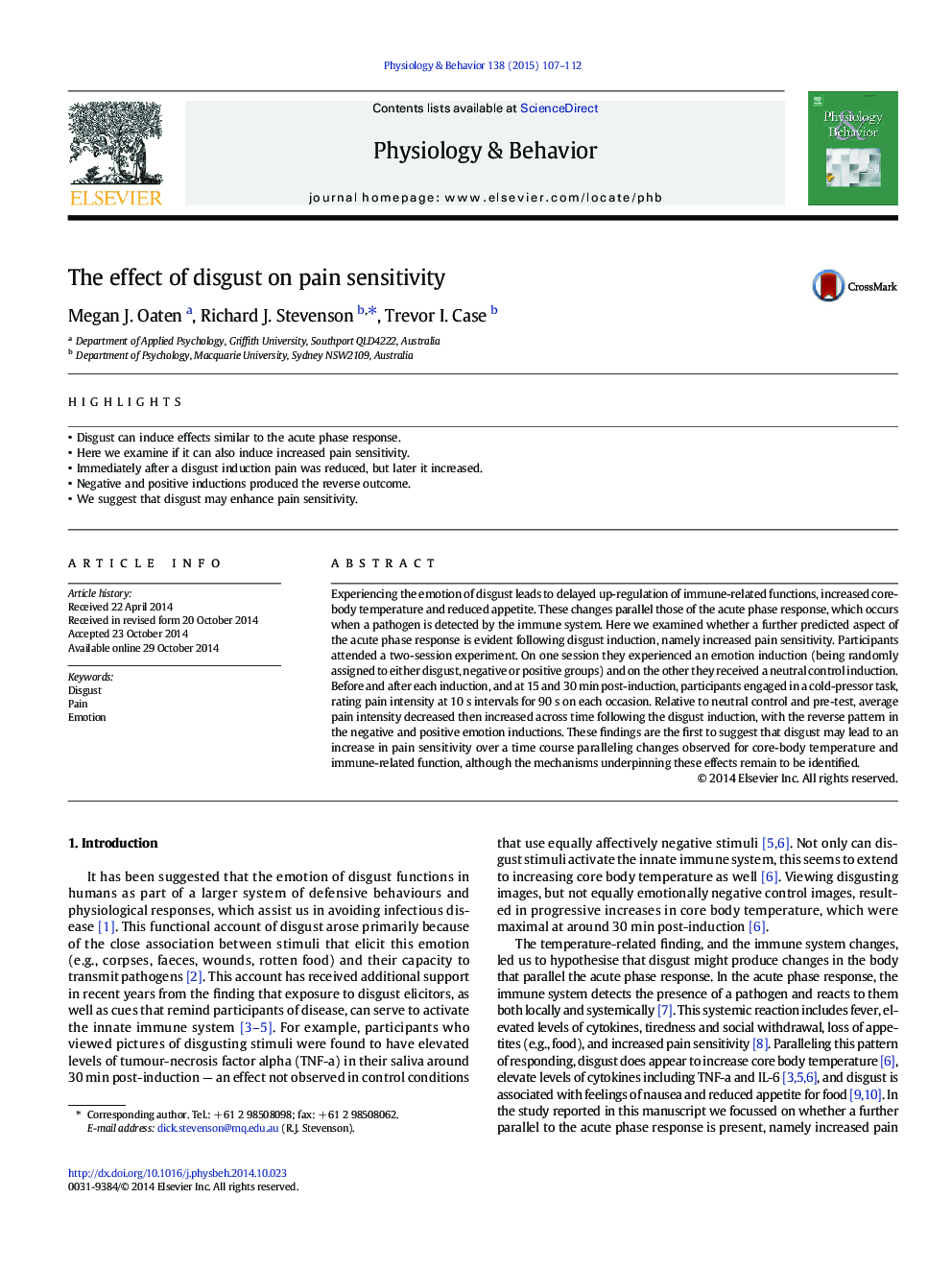| کد مقاله | کد نشریه | سال انتشار | مقاله انگلیسی | نسخه تمام متن |
|---|---|---|---|---|
| 2844199 | 1571179 | 2015 | 6 صفحه PDF | دانلود رایگان |
• Disgust can induce effects similar to the acute phase response.
• Here we examine if it can also induce increased pain sensitivity.
• Immediately after a disgust induction pain was reduced, but later it increased.
• Negative and positive inductions produced the reverse outcome.
• We suggest that disgust may enhance pain sensitivity.
Experiencing the emotion of disgust leads to delayed up-regulation of immune-related functions, increased core-body temperature and reduced appetite. These changes parallel those of the acute phase response, which occurs when a pathogen is detected by the immune system. Here we examined whether a further predicted aspect of the acute phase response is evident following disgust induction, namely increased pain sensitivity. Participants attended a two-session experiment. On one session they experienced an emotion induction (being randomly assigned to either disgust, negative or positive groups) and on the other they received a neutral control induction. Before and after each induction, and at 15 and 30 min post-induction, participants engaged in a cold-pressor task, rating pain intensity at 10 s intervals for 90 s on each occasion. Relative to neutral control and pre-test, average pain intensity decreased then increased across time following the disgust induction, with the reverse pattern in the negative and positive emotion inductions. These findings are the first to suggest that disgust may lead to an increase in pain sensitivity over a time course paralleling changes observed for core-body temperature and immune-related function, although the mechanisms underpinning these effects remain to be identified.
Journal: Physiology & Behavior - Volume 138, January 2015, Pages 107–112
